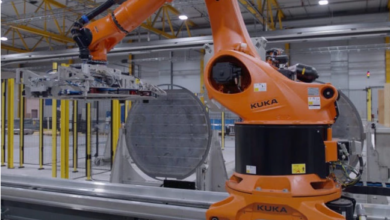BAM Nuttall and Motive Fuels awards funding
This project will unlock significant investment from Motive in producing hydrogen for the construction sector.

BAM Nuttall and Motive Fuels have been awarded more than £350,000 of funding to help develop hydrogen-fuelled construction equipment as part of a government competition to help the sector adapt to the red-diesel ban.
The project is one of 17 successful project partnerships to be awarded funding through the Red Diesel Replacement competition, which falls under the Net Zero Innovation Portfolio after the Department for Business, Energy & Industrial Strategy provided circa £6.7 million during phase one.
The H2Construction project will see BAM work in partnership with Motive, BRE, CENEX and PowerStar to develop a solution for producing green hydrogen that will provide zero carbon fuel to construction sites around the East of England and will further help BAM’s decarbonisation of its construction operations.
A key part of the feasibility study will examine past and current plant fuel consumption to a high level of granularity and will cover a large portion of the UK’s plant usage thanks to insights from L. Lynch, Flannery and Machine Max. This will enable accurate forecasts to be produced and subsequently inform the commercial case to switch to hydrogen. If successful, the project will pave the way for local production and distribution of green hydrogen for vehicles and plant without the need for major grid electricity supply upgrades.
The project comes as the next step in BAM’s journey to net zero carbon, with the business looking for a longer-term solution to the use of Hydrotreated Vegetable Oil (HVO) which was adopted across BAM UK projects in 2021.
While the use of HVO has already contributed towards a 3.4 kilo-tonne reduction in BAM’s carbon emissions, the exploration of even lower carbon and more sustainable solutions such as electrification and the hydrogen-powered plant will help accelerate the progress made by BAM and the wider industry towards net zero carbon.
Once phase one of the feasibility study has been completed, BAM, in partnership with the H2Construction consortium, will apply for phase 2 which would see the Government-backing to build and demonstrate the technology.
Sarah Jolliffe, BAM’s Carbon Reduction Lead, said, “The investment the UK government are making to deliver the RDR scheme is a significant and positive step towards achieving net zero carbon emissions by 2050 and gives the construction industry the ability to confidently invest in hydrogen and other low carbon technologies.”
James Cross, Motive Fuels development manager and RDR project lead, said, “This project will show the potential for hydrogen to address emissions from plant, heavy transport and site generation in the construction sector.”
Merrill Lynch, L. Lynch Director, said, “For heavy construction equipment, hydrogen is currently the most logical next step beyond the use of HVO. There have been great examples of its success with buses and taxis, so why not heavy plant. The real challenge for this transition will be the storage of hydrogen on-site. With the force of BAM behind this innovation, I am certain a storage solution will be found. Currently, Lynch are investing in and making huge positive impacts (-42% CO2 savings) with eco-driver training programmes.”
Victor Lejona, CENEX modelling & analysis team lead, said, “Cenex is delighted to participate in this innovative project and contribute to reduce emissions in such a hard-to-decarbonise industry as construction.”
This funding has been made available from the government’s £1 billion Net Zero Innovation Portfolio, which looks to accelerate the commercialisation of low-carbon technologies and systems through its £40 million Red Diesel Replacement competition.
